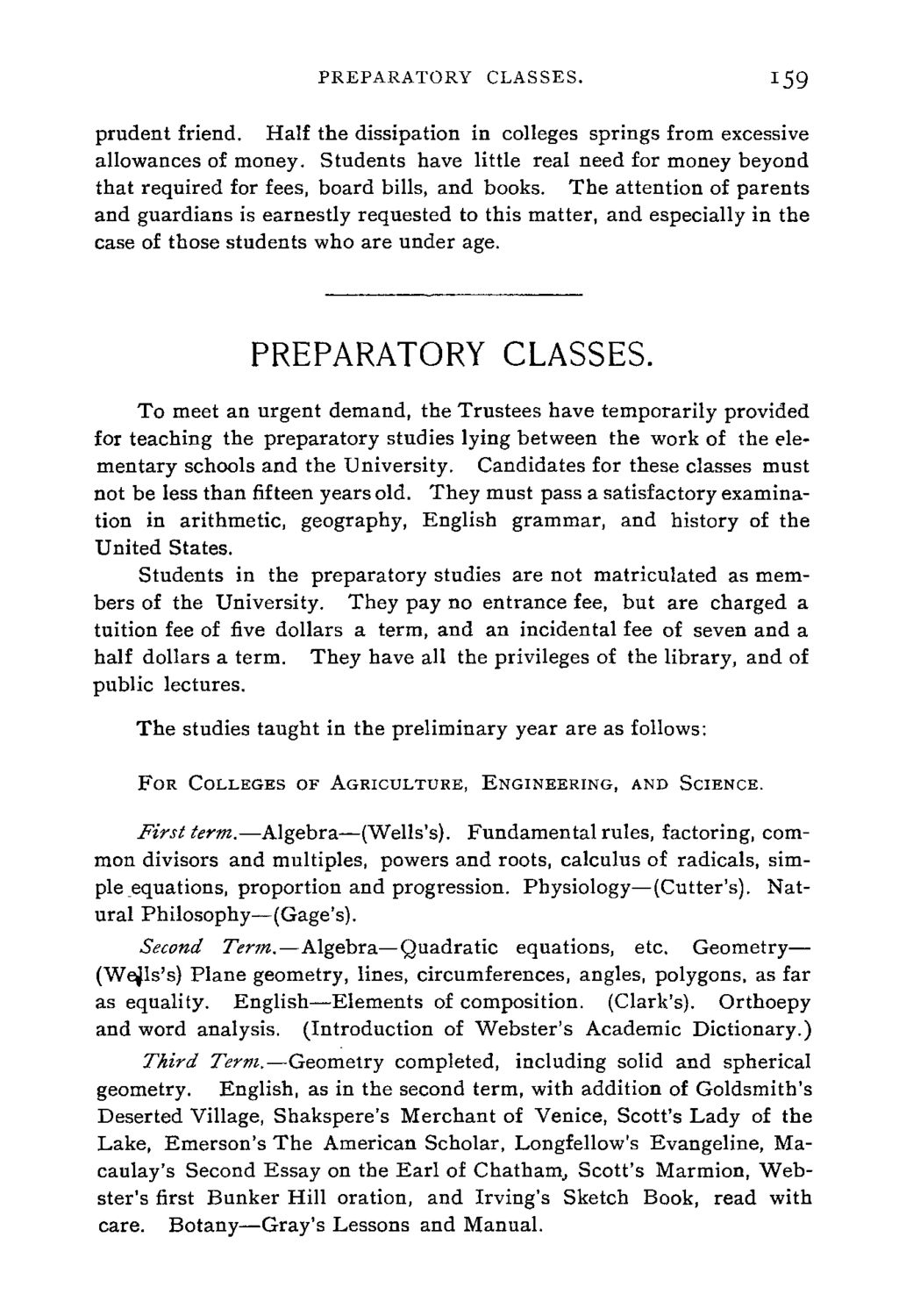| |
| |
Caption: Course Catalog - 1892-1893
This is a reduced-resolution page image for fast online browsing.

EXTRACTED TEXT FROM PAGE:
PREPARATORY CLASSES. 159 prudent friend. Half the dissipation in colleges springs from excessive allowances of money. Students have little real need for money beyond that required for fees, board bills, and books. The attention of parents and guardians is earnestly requested to this matter, and especially in the case of those students who are under age. PREPARATORY CLASSES. To meet an urgent demand, the Trustees have temporarily provided for teaching the preparatory studies lying between the work of the elementary schools and the University. Candidates for these classes must not be less than fifteen years old. They must pass a satisfactory examination in arithmetic, geography, English grammar, and history of the United States. Students in the preparatory studies are not matriculated as members of the University. They pay no entrance fee, but are charged a tuition fee of five dollars a term, and an incidental fee of seven and a half dollars a term. They have all the privileges of the library, and of public lectures. The studies taught in the preliminary year are as follows: FOR COLLEGES OF AGRICULTURE, ENGINEERING, AND SCIENCE. First term.—Algebra—(Wells's). Fundamental rules, factoring, common divisors and multiples, powers and roots, calculus of radicals, simple equations, proportion and progression. Physiology—(Cutter's). Natural Philosophy—(Gage's). Second Term.—Algebra—Quadratic equations, etc. Geometry— (Wejls's) Plane geometry, lines, circumferences, angles, polygons, as far as equality. English—Elements of composition. (Clark's). Orthoepy and word analysis. (Introduction of Webster's Academic Dictionary.) Third Term.—Geometry completed, including solid and spherical geometry. English, as in the second term, with addition of Goldsmith's Deserted Village, Shakspere's Merchant of Venice, Scott's Lady of the Lake, Emerson's The American Scholar, Longfellow's Evangeline, Macaulay's Second Essay on the Earl of Chatham., Scott's Marmion, Webster's first Bunker Hill oration, and Irving's Sketch Book, read with care. Botany—Gray's Lessons and Manual.
| |